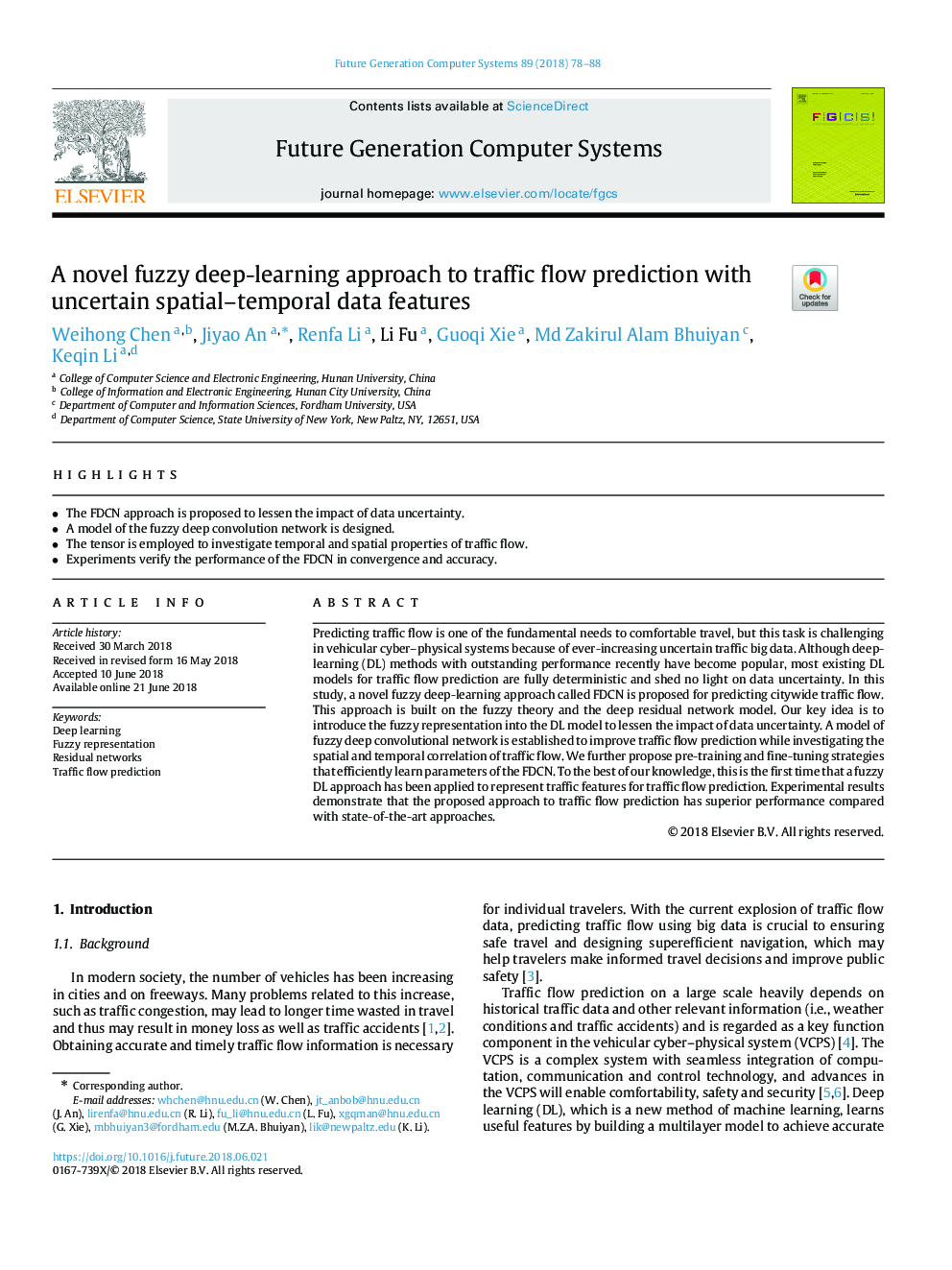| Article ID | Journal | Published Year | Pages | File Type |
|---|---|---|---|---|
| 6872789 | Future Generation Computer Systems | 2018 | 11 Pages |
Abstract
Predicting traffic flow is one of the fundamental needs to comfortable travel, but this task is challenging in vehicular cyber-physical systems because of ever-increasing uncertain traffic big data. Although deep-learning (DL) methods with outstanding performance recently have become popular, most existing DL models for traffic flow prediction are fully deterministic and shed no light on data uncertainty. In this study, a novel fuzzy deep-learning approach called FDCN is proposed for predicting citywide traffic flow. This approach is built on the fuzzy theory and the deep residual network model. Our key idea is to introduce the fuzzy representation into the DL model to lessen the impact of data uncertainty. A model of fuzzy deep convolutional network is established to improve traffic flow prediction while investigating the spatial and temporal correlation of traffic flow. We further propose pre-training and fine-tuning strategies that efficiently learn parameters of the FDCN. To the best of our knowledge, this is the first time that a fuzzy DL approach has been applied to represent traffic features for traffic flow prediction. Experimental results demonstrate that the proposed approach to traffic flow prediction has superior performance compared with state-of-the-art approaches.
Related Topics
Physical Sciences and Engineering
Computer Science
Computational Theory and Mathematics
Authors
Weihong Chen, Jiyao An, Renfa Li, Li Fu, Guoqi Xie, Md Zakirul Alam Bhuiyan, Keqin Li,
